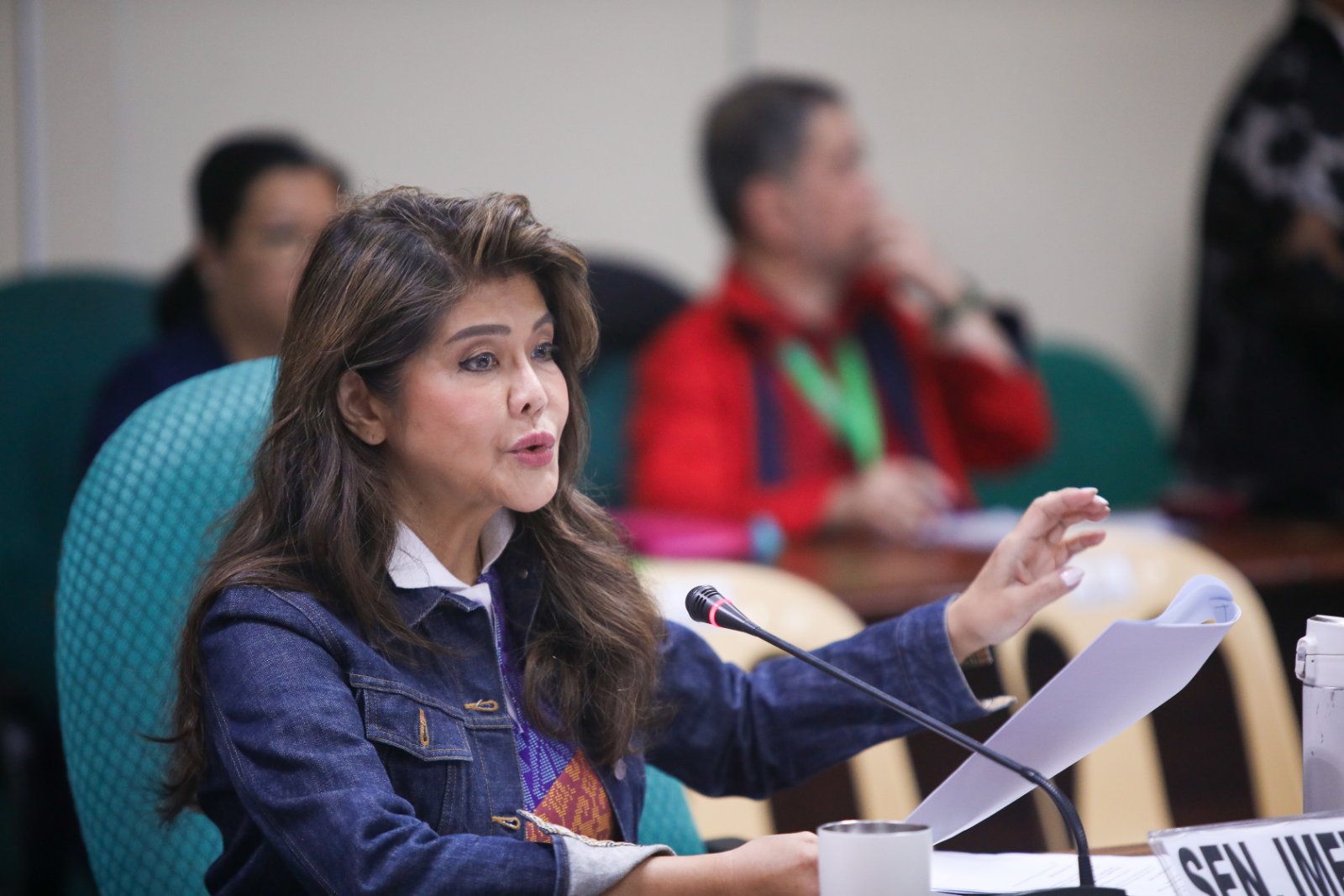Imee Marcos wants 4Ps to cover bedridden seniors, PWDs in unconditional cash transfer
By Dhel Nazario
Sen. Imee Marcos is pushing for the expansion of the Pantawid Pamilyang Pilipino Program (4Ps) by including unconditional cash transfers for bedridden senior citizens and persons with disabilities (PWDs).

Marcos, the chairperson of the Senate Committee on Social Justice, Welfare and Rural Development, urged the Department of Social Welfare and Development (DSWD) during a hearing on Tuesday, April 23, on several bills proposing amendments to the “4Ps Act (Republic Act 11310)” and the institutionalization of the Assistance to Individuals in Crisis Situations (AICS).
“Mayaman na nga ang Pilipinas at umaasenso sa ekonomiya pero marami pa ring Pilipinong naiiwan. Kaya ito nga tinitignan natin yung 4Ps kung paanong palalaganapin kasi mayroong nakakalimutan o napag-iiwanan katulad ng bedridden seniors at yung mga severely challenged na PWD (The Philippines economy is progressing but a lot of Filipinos are being left behind. That's why we're looking at 4Ps on how it can be expanded because the bedridden seniors and severely challenged PWD are being left behind)," she said.
“Matagal ko nang sinasabi, huwag nang gawing conditional cash transfer—unconditional na yan at yan ay utos ng ating Panginoon, nasa Bibliya yan, pangalagaan na lang yung matatanda at yung may kapansanan na hindi nakakapagtrabaho (I have been saying this for a long time, don't make it conditional cash transfer -- it's unconditional and it's a mandate from God, it's in the bible, take care of the elderly and the PWDs who cannot work) ,” she added.
Since the program’s inception in 2007, 4Ps indicators have been limited to health and vaccination, and education. The senator stressed it should offer “a more diversified menu to cover more poor beneficiaries.”
She explained, “There are other causes of poverty not addressed by 4Ps… Dapat from 2007 it should diversify; hindi na sapat ang 2 measurements: vaccination and education.”
Marcos also urged the DSWD, in collaboration with other government agencies and non-government organizations (NGOs), to come up with practical “exit strategies” for 4Ps beneficiaries to allow more impoverished Filipinos to avail of the program, including the Alternative Learning System (ALS), adult education, and entrepreneurship and other employment activities.
For 4Ps to succeed, families must eventually be able to be self-sufficient, she stressed, noting a Commission on Audit (CoA) report stating that 90 percent of active 4Ps beneficiaries in 2022 were still well below the poverty line and would remain there.
The same report noted a total of 4.2 million active 4Ps beneficiaries have been on the program for 7 to 13 years.
The senator also underscored the necessity for a comprehensive and thorough evaluation of the program, integrating assessments conducted by the Philippine Institute for Development Studies (PIDS), Social Welfare Indicator (SWIn), and the World Bank to determine how it has effectively impacted the poor sector of Philippine society.
She maintained the same position for AICS.
“Alam nating kulang ang pera so i-prioritize natin ang pinakaimportanteng programa (We know that we lack funds so let's prioritize the most important program), and determine which of the programs are not doing well,” she explained.
To prevent the politicization of AICS and to allow DSWD “to do its job,” Marcos agreed with the position of the department barring local and national leaders from having any say on the beneficiaries’ list.
Social Welfare Secretary Rex Gatchalian led the DSWD contingent in the hearing.